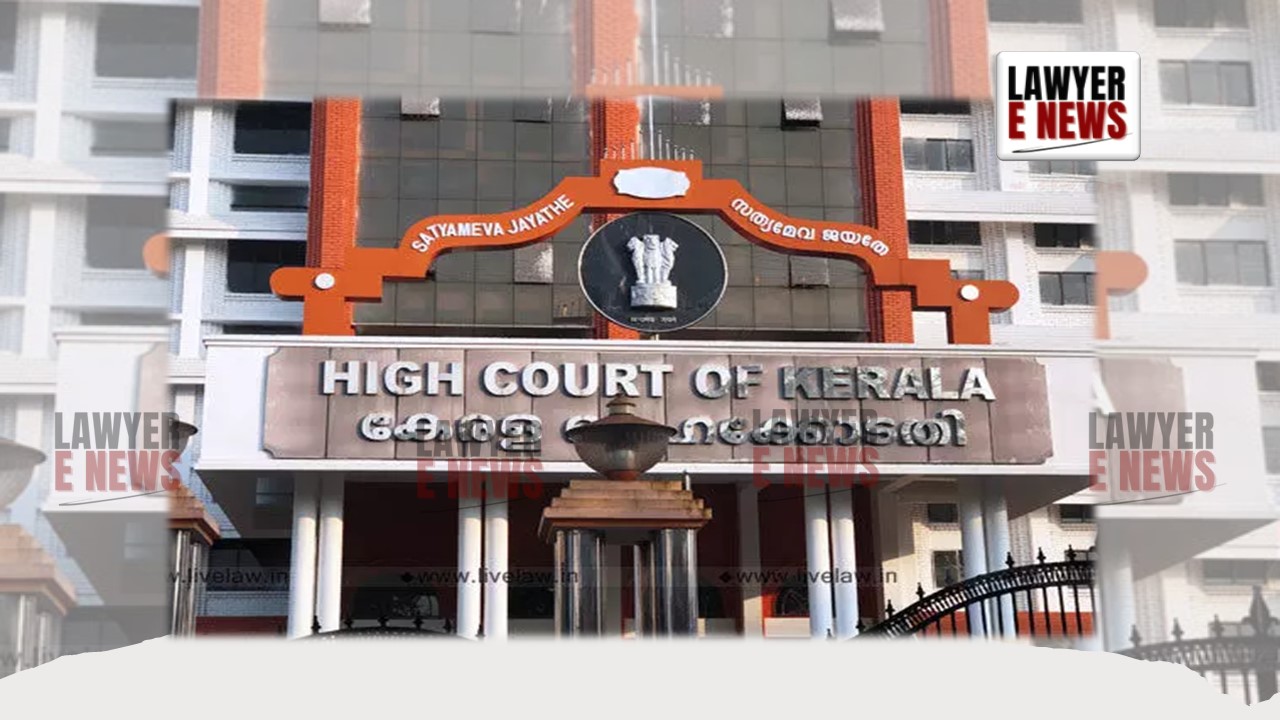-
by Admin
15 February 2026 5:35 AM



Kerala High Court dismissed a writ petition challenging the initiation of surcharge proceedings against the Managing Committee of a co-operative bank. The petitioners sought to quash inquiry reports issued under Sections 66(2) and 68(1) of the Kerala Co-operative Societies Act, 1969, and prevent further action under Section 68(2). Justice N. Nagareesh, delivering the judgment, held that the inquiry was within the permissible scope of the law, and the petitioners could not challenge a mere show cause notice at this stage.
The case concerned Maneed Service Co-operative Bank Ltd., where the Managing Committee faced inquiries initiated by the Joint Registrar of Co-operative Societies following complaints regarding alleged irregularities in the bank’s operations. The Joint Registrar, invoking Section 66(2) of the Kerala Co-operative Societies Act, ordered an inspection of the bank’s financial and management affairs. Based on this inspection, a further inquiry under Section 68(1) was initiated to address specific mismanagement issues, culminating in the issuance of a show cause notice under Section 68(2).
The petitioners, including the bank and its Managing Committee, challenged the validity of the inquiry reports under Sections 66(2) and 68(1), and sought to quash the Section 68(2) proceedings, which are designed to recover losses and penalize individuals responsible for irregularities.
1. Scope of Inquiry Under Section 66(2)
The petitioners contended that the inquiry conducted under Section 66(2) constituted a roving investigation beyond the permissible scope, as it examined matters like the valuation of mortgaged properties and loan disbursements. The court, however, found that the inquiries were focused on specific allegations of mismanagement and financial irregularities. Justice Nagareesh observed:
"Section 66(2) permits an inquiry into the management and affairs of the society, including the valuation of mortgaged properties, loan disbursements, and other financial matters. There is no evidence that the inquiry exceeded its lawful scope or became a roving investigation." [Paras 14-17]
The court upheld the findings of the inquiry officer, which revealed irregularities in areas such as software installation, building maintenance, and the sanctioning of loans to family members of bank employees without proper valuation of collateral.
2. Maintainability of the Petition and Challenge to Surcharge Proceedings
The primary argument from the petitioners was that the Managing Committee and the bank itself should be allowed to challenge the Section 68(2) surcharge proceedings. However, the court clarified that Section 68(2) proceedings target individuals responsible for financial mismanagement and irregularities, not the bank as an entity. Justice Nagareesh ruled:
"Section 68 proceedings are aimed at surcharging individuals responsible for irregularities. The Managing Committee and the bank cannot maintain a challenge against these proceedings, as they are designed to strengthen the bank by holding individuals accountable." [Paras 11-13]
The court reiterated that only individuals who are surcharged or directly affected by a final order under Section 68(2) may challenge the proceedings, and any challenge to the inquiry reports by the Managing Committee was premature.
3. Premature Challenge to Show Cause Notice
The petitioners sought to quash Ext. P6, a show cause notice issued under Section 68(2). The court emphasized that a show cause notice is not a final order and does not warrant judicial interference at this stage. Justice Nagareesh stated:
"A show cause notice is a preliminary step, and the affected parties will have the opportunity to defend themselves before any final order is passed under Section 68(2). The challenge to the notice is premature and cannot be entertained." [Para 18]
The court concluded that the petitioners could only challenge the proceedings after a final adverse order, if issued.
The court addressed the petitioners’ arguments that the inquiry report failed to comply with Rule 66(5) of the Kerala Co-operative Societies Rules, specifically that the tentative balance sheet and other supporting documents were not attached. The respondents, represented by the Government Pleader, refuted this claim, stating that the necessary documents were provided.
The court also dismissed the argument that there was no evidence of personal involvement of the Managing Committee members in the irregularities. The inquiry report under Section 66(2) revealed substantial mismanagement, including improper loan disbursement practices and unapproved financial schemes.
Furthermore, the court dismissed the petitioners’ reliance on a previous judgment in Johnson v. Joint Registrar of Co-operative Societies (2024 (5) KLT SN 13), holding that the present case involved clear evidence of mismanagement affecting the bank’s financial stability.
The Kerala High Court dismissed the writ petition, upholding the validity of the inquiry reports under Sections 66(2) and 68(1) and ruling that the challenge to the Section 68(2) show cause notice was premature. The court reaffirmed that the proceedings were aimed at addressing financial mismanagement and irregularities within the bank, and only individuals surcharged in a final order could challenge the outcome. The ruling underscores the limited scope of judicial review at the preliminary stages of such proceedings under the Kerala Co-operative Societies Act, 1969.
Date of Decision: October 17, 2024
